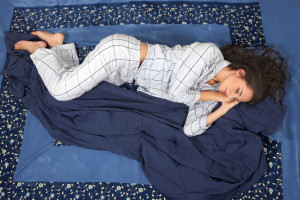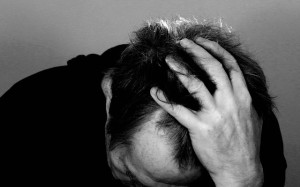Contributor: Kelly Everson is an American author, with a MA in English literature, Consumer Health Digest
 There are various studies showing that the use of sleeping pills in the US have tripled to 1,524 users per 100,000 in 2006 from 599 users per 100,000 in 1998. Sleeping pills are taken ore often by people in their mid-20s to mid-40s. But the most drastic increase was among young, college-aged adults from 18 to 24 years old.
There are various studies showing that the use of sleeping pills in the US have tripled to 1,524 users per 100,000 in 2006 from 599 users per 100,000 in 1998. Sleeping pills are taken ore often by people in their mid-20s to mid-40s. But the most drastic increase was among young, college-aged adults from 18 to 24 years old.
The most common sleeping pills used are non-benzodiazepine hypnotics Ambien CR, Sonata (Zaleplon), and Lunesta. The increasing rates of sleeping pills use is because people believe that this drug does not carry the same risk of dependence brought by older medications.
Effects and Abuse
Sleeping pills should only be taken immediately before sleeping. It should not be taken if you plan to wake up early the next day, because it could lead to daytime sedation.
Doctors usually only prescribe sleeping pills for their patients for short-term use. It is supposed to be given only for severe cases of insomnia. Sleeping pills are not necessarily given on a strict dosage schedule. However, a lot of people are using sleeping pills whenever they feel sleepy or feel anxious.
When it is used in a way that is not prescribed by the doctor, then it is considered abuse. When abused, sleeping pills can have hallucinatory effects, especially when the person who took it is fighting the urge to sleep. Other effects of sleeping pills include reduced anxiety, dreamless sleep, and lack of coordination, dizziness, light-headedness, and hallucinations. It can also worsen the buzz that drinking alcohol brings.
Tolerance
 When it is used too often, over time, the brain will become accustomed to its effect, which will lead to a more difficult road to recovery. People recovering from sleeping pill addiction often undergo “rebound insomnia.”It could even lead to insomnia that is worse than it was before the medication was taken.
When it is used too often, over time, the brain will become accustomed to its effect, which will lead to a more difficult road to recovery. People recovering from sleeping pill addiction often undergo “rebound insomnia.”It could even lead to insomnia that is worse than it was before the medication was taken.
These are common side effects and shouldn’t be used as an excuse to not stop abusing the medication. Medically assisted detox is one of the best ways to help minimize the symptoms associated to the withdrawal.
Addiction
Addiction to medication can be determined by observing key takeaways, which are withdrawal symptoms, tolerance, persistent desire, and multiple unsuccessful attempts to quit. Addiction is developed when a person compulsively relies on sleeping pills to get a normal sleep.
When taken in high levels, sleeping pills can make people drowsy and give a feel good effect just like its highly addictive counterparts. This rewires the individual’s brain to only feel better when using sleeping pills. This makes recovery difficult, but not impossible.
Understanding Addiction
 To treat addiction, it is important to first understand it. The person abusing the medication should first affirm that addiction is a complex matter that affects the function and behaviours of the brain, but is treatable.
To treat addiction, it is important to first understand it. The person abusing the medication should first affirm that addiction is a complex matter that affects the function and behaviours of the brain, but is treatable.
What is the underlying cause of insomnia?
Insomnia is associated with various underlying medical a psychological disorders, making it a vital disorder to treat. Behavioral and medication therapy are often used, sometimes together, to treat insomnia. The major goal is to get the patient off the sleep medication when the insomnia is treated.
There are people who have chronic insomnia associated with medical or psychiatric disorder who should continue medication for a long time. They can take sleeping pills without adverse effects. Sleeping pills when used as prescribed are very safe.
Sleeping Pills
Sleeping pills are widely used and there are a lot of people who don’t experience any side effects. But little did they know that it can in fact lead to psychological habit-formation. If the sleeping pill helps them sleep properly and it is suddenly cut off, these individuals may show psychological dependence. This may not be chemical addiction, but it promotes dependence on the medication.
This is why behavioral treatments are very important. This includes proper sleep hygiene and cognitive behavioral therapy. This way, patients can withdraw from sleeping pills without returning to their insomnia disorders. By treating the patient behaviorally, there will be no need to increase the dose, and the individual will not develop a tolerance to any medication.
Treating Insomnia
 Cognitive behavior therapy, or CBT-I, is considered to be one of the best treatment for insomnia. It can treat patients with primary insomnia, chronic pain, anxiety, and depression. It could also hep older adults who can’t seem to sleep properly.
Cognitive behavior therapy, or CBT-I, is considered to be one of the best treatment for insomnia. It can treat patients with primary insomnia, chronic pain, anxiety, and depression. It could also hep older adults who can’t seem to sleep properly.
This technique produces results better than sleeping pills. It helps patients sleep well even a year after ending the treatment. The treatment takes 4 to 12 sessions.
This treatment is anchored on the concept that insomnia is caused by various factors that helps maintain the health issue. Some of these behaviors include napping, going to bed early, using alcohol ass sedative worrying about sleep caffeine use, tossing around in bed. CBT-I is focused on treating these issues. Ultimately, just like any other prescription drugs, sleeping pills should only be taken according to the recommendations of the doctor.
Community Discussion – Share your thoughts here!
Have you experienced insomnia? What natural ways of battling insomnia have you found?
About the Author:
 Kelly Everson is MA in English Literature and an American Author. Her work comprises of articles appearing or forthcoming in over a dozen health care websites covering beauty skin care, weight loss, diet and overall men’s & women’s health. When she’s not educating strangers with her writing, she’s most likely researching about new discoveries in health, fitness and beauty industry. You can see more of her work at ConsumerHealthDigest.com. Connect with her on Facebook and Twitter.
Kelly Everson is MA in English Literature and an American Author. Her work comprises of articles appearing or forthcoming in over a dozen health care websites covering beauty skin care, weight loss, diet and overall men’s & women’s health. When she’s not educating strangers with her writing, she’s most likely researching about new discoveries in health, fitness and beauty industry. You can see more of her work at ConsumerHealthDigest.com. Connect with her on Facebook and Twitter.
References:
- http://www.familyhealthguide.co.uk/11-surprising-health-benefits-of-good-night-sleep.html
- https://www.addictionhope.com/mood-disorder/depression/how-common-are-co-occurring-disorders-statistics
Last Updated & Reviewed By: Jacquelyn Ekern, MS, LPC on July 31st, 2015
Published on AddictionHope.com
